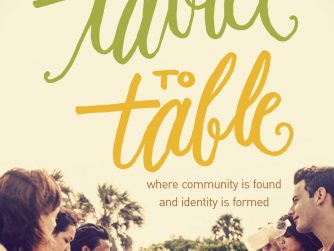
I did a lot of reading this year. That reading covered an eclectic range of topics from spirituality, theology and ministry to time management, business and creativity. Based on that reading, I want to share with you the best books I read in 2010.
Area: Productivity
This was an easy selection. The book 168 Hours: You Have More Time Than You Think by Laura Vanderkam was a phenomenal book. In it she showed how we need to examine our time and learn to use it more effectively, based on our motivations, our needs, and our goals. She examined motivation theory and applied that to how we can better manage our time usage. In fact, it is our motivation that really is the problem in getting things done. There are ways to work, have a life, and achieve what we need to achieve if we are able to make the sacrifices necessary to get things done. Laura shows you how.
Area: Business
I could not come to a clear decision with this category, so I have chosen two. Seth Godin’s book Linchpin: Are You Indispensable? will be on everybody’s “Top Books” list for a reason. It is a remarkable book that describes how we have commodified work, making people cogs in a wheel. The truth is, however, that we are made to be creative and in that creativity we grow and develop as individuals, not beholden to a system that demotivates and suppresses us.
Daniel Pink’s book Drive: The Surprising Truth About What Motivates Us takes a look at what motivates us. He concludes that there are three essential elements to our motivation: autonomy, mastery, and purpose. Business has simply believed that carrots and sticks, rewards and punishments, would be the primary motivations for us in life and business but research over a 50 year period continues to show us that rewards and punishments are not the motivational answers.
Area: Biblicial Theology
Millard Erickson’s book Who’s Tampering with the Trinity?: An Assessment of the Subordination Debate (review coming soon) was hands down the most important and best theological book I read this year. Erickson takes on the issue of the Eternal Subordination of Jesus which is a growing emphasis among some, especially in prominent Southern Baptist seminaries. Erickson explains the differences between eternal subordination and temporal subordination, and traces both views from the late 1800’s. He then looks at the biblical evidence, and the historical theology evidence. He also examines the philosophical and logical issues that surround the eternal subordination debate. Finally, he looks at the logical consequences of both views in practical theology. After all that is accomplished, he then offers his view of who is more correct.
Area: Missional Theology
Marty Duren offeres us a great resource in The Generous Soul: An Introduction to Missional Giving.This book offers up a theology of receiving and a theology of giving, couching both as a necessary expression of missional theology.
Area: Church Leadership/Ministry
Though published late in 2010, the release of To Love and To Cherish From This Day Forward…A Portrait of a Healthy Church by Randy Millwood should be on the top of your reading stack in 2011. In my mind, this is the most important book on church health I have ever read. The book offers up a beautiful metaphor of the church as the Bride of Christ. He shows what a healthy church looks like and how it functions.
Area: Evangelism
Len Sweet makes the list year with his offering of Nudge: Awakening Each Other to the God Who’s Already There. In this book Len develops the idea of semiotics and applies it to seeing the work of God in the lives of others and nudging them closer to a relationship with the Way, the Truth, and the Life who is the only way to God.The challenge to not to practice the art of “hit and run evangelism” (my phrase) but to embrace a missional and relational evangelism – seeing where God is working in the life of someone and through relationship prompting them toward Christ. See review here.
My 2010 Book of the Year: Jesus Manifesto: Restoring the Supremacy and Sovereignty of Jesus Christ by Len Sweet and Frank Viola
When I was in college (1991), I went with three friends to eat at a local restaurant. All of us have since then served in a ministry staff position. During our dinner conversation we spent most of the time being critical of the expressions of church that we were in. As we were finishing our meal, the waitress dropped off our check. A few minutes later, she came back and picked it up and never returned. As she walked by, I asked if we could get our check and she said that someone had taken care of it. As we were getting up to leave, a man two tables over from us called us over to his table.
He was a Christian from Canada and had come to Huntsville, AL for a meeting. He felt compelled to stop in this particular restaurant for a cup of coffee. As he sipped his java, he heard our entire conversation. He noted that we talked a great deal about the church. He then pointed out the people at other tables who were captivated by our conversation. He was saddened, however, because we had a whole section of the restaurant listening to us and we never once spoke the name of Jesus. We never helped people understand how begin a relationship with Christ. This man then paused, and asked us a question I will never forget: “Guys, I want to know something. What does Jesus mean to you?”
There is a lot of talk about centering our lives around the gospel and a lot of talk about centering our lives around the great commission. But the real question that we need to explore is this: What doss Jesus mean to you?
That is the point that Len and Frank try to make. The book contains a magnificent revelation of the beauty, glory, and wonder of Christ that speaks to both the head and the heart. The style of writing is typical Len Sweet, filled with metaphor and poetry combined to create imagery that is stunning. The content is compelling and true to Scripture. This book prompts us to return to the supremacy of Jesus Christ.
If you haven’t read the book, I urge you to get it and read it.



